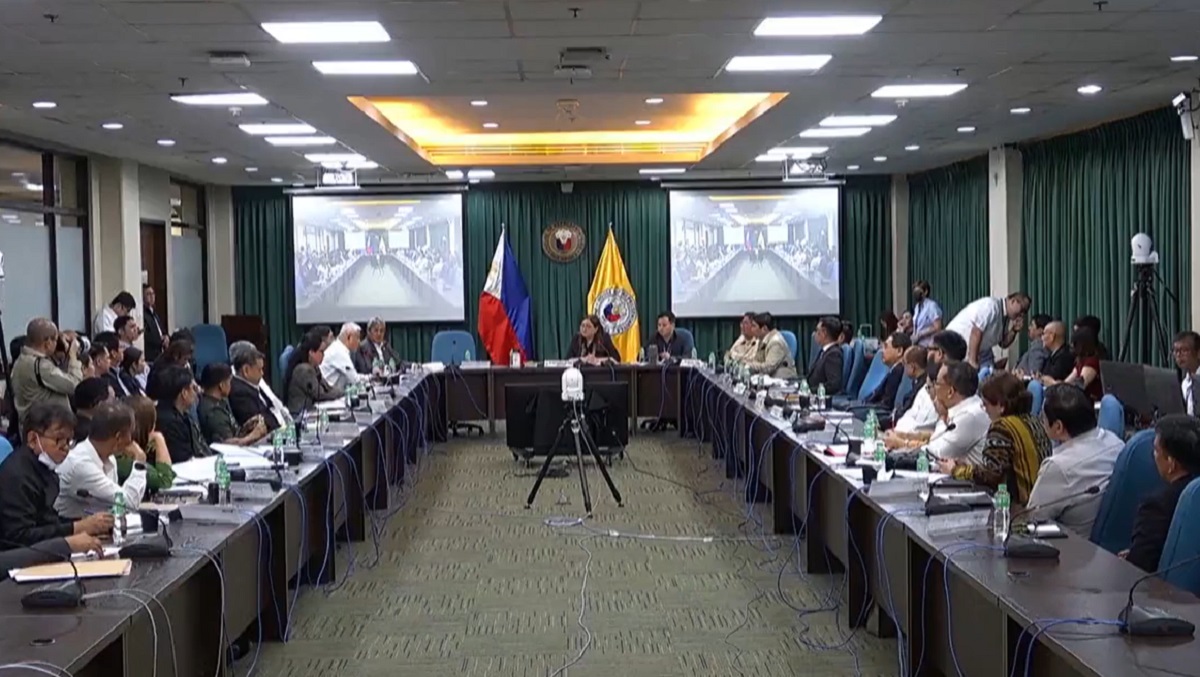St. Paul denies charging foreign students P1.2M, says enrolled Chinese only 828

St. Paul University Philippines on Wednesday denied during a hearing at the House of Representatives that it charges foreign students, especially Chinese nationals, P1.2 million for postgraduate education.
"St. Paul University does not charge P1.2 million," Jeremy Morales, the university’s Director for Internationalization, said during the hearing of the House Committee on Justice regarding the influx of Chinese students in Tuguegarao, Cagayan.
Morales said St. Paul charges $1,000 or around P58,000 per trimester for each foreign student.
At present, he said there are 828 Chinese students enrolled in the university, of which 200 are attending physically.
"In one year, the students enroll in four trimesters. So for the students to complete their graduate school program, they are enrolled in at least 10 trimesters… It does not reach P1.2 million," Morales told lawmakers.
This came after Cagayan Representative Joseph “Jojo” Lara said that a representative from St. Paul had neither denied nor confirmed information that the university charges its foreign students P1.2 million during an earlier meeting with him.
Lara added that the representative had told him that the university is seeking to admit 10,000 Chinese students.
Morales, meanwhile, clarified that he was not the representative who attended the meeting.
"I also would like to say that I was not verified or I was not asked before numbers were given out," he said.
The House inquiry stemmed from reports that there are at least 4,600 Chinese students in one private university in Cagayan alone, raising concerns about possible Chinese "sleeper cells" amid the increasing tension between the Philippines and China involving the West Philippine Sea.
Student visas
During the hearing, Immigration Commissioner Norman Tansingco explained that foreign nationals who intend to study in the Philippines can do so by applying for a 9F student visa and a 9A entry visa with the Philippine Consulate.
"In the two modes, the prospective foreign student already has the notice of acceptance from the school, which is the basis for the — either the mode one for the issuance of the 9F visa or the second mode for the issuance of the 9A visa for the purpose of studying in the country," he explained.
He said most foreign students opt to get a 9A visa and then convert these upon arrival due to the processing period of 9F visas.
Tansingco said that all foreign students in St. Paul chose to get a 9A visa.
"So they came in using 9A tourist visa and converted to 9F. Based on our data, for St. Paul University for 2023, 1,464 only applied for conversion and 52 applied for extension. We have no data showing of the 4,600 students," Tansingco said.
Foreign students in PH
Meanwhile, Commission on Higher Education (CHED) executive director Cinderella Filipina Benitez said that for the last seven years, the highest number of foreign nationals in the Philippines were Indian, followed by Chinese, and then Nigerian.
Data from CHED showed that there are a total of 17,202 foreign students enrolled in the country. Of this, 8,973 were Indian, 5,334 were Chinese, and 838 were Nigerian.
"Based on our data, for Academic Year 2022-2023, it was NCR (National Capital Region) with the highest number of Chinese students. For academic year 2023… NCR, followed by Region II," she said.
According to Benitez, CHED and the Bureau of Immigration have agreed to share data.
"There appears to be a difference between the data of the Higher Education and BI as to the number of students. Our number, is of course, enrollment po ang basis namin sa number of foreign students while doon po sa BI is the number of visa issuance," she said.
"That is the reason why we have agreed to have a data sharing agreement, so we can consolidate the data of all government agencies and we can appraise all the members of the committee on the data of one another," Benitez added.
In a separate statement, ACT-CIS party-list Representative Erwin Tulfo said Lara’s revelation should prompt an urgent review of the country’s policies to ensure that they do not compromise national security and sovereignty.
“The government must act swiftly to implement measures that safeguard our national interests while maintaining the integrity and accessibility of our educational system,” Tulfo said.
During the hearing, the Intelligence Service of the Armed Forces of the Philippines also requested an executive session to present their investigation report on the influx of Chinese students in Cagayan. —KBK/VBL, GMA Integrated News




